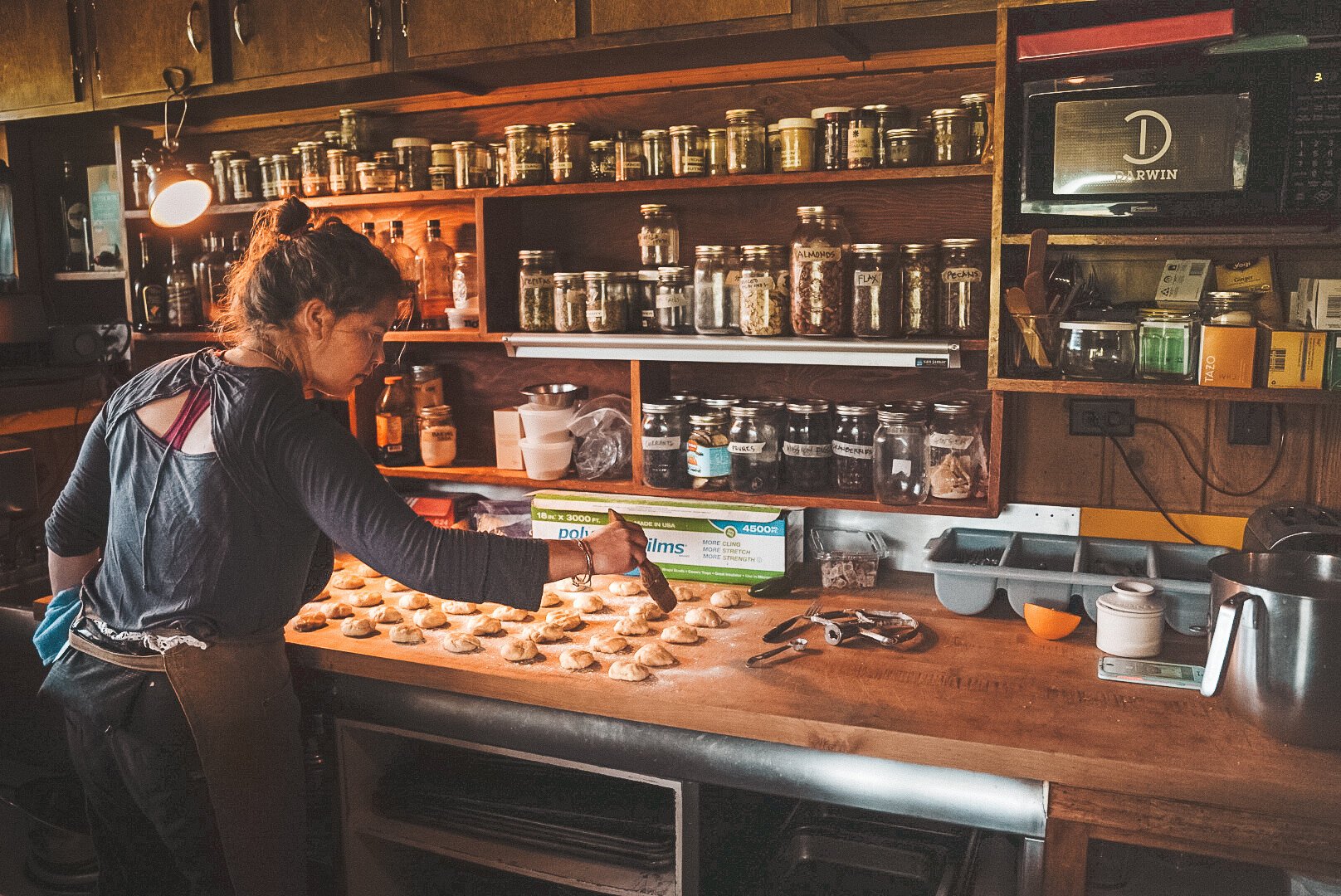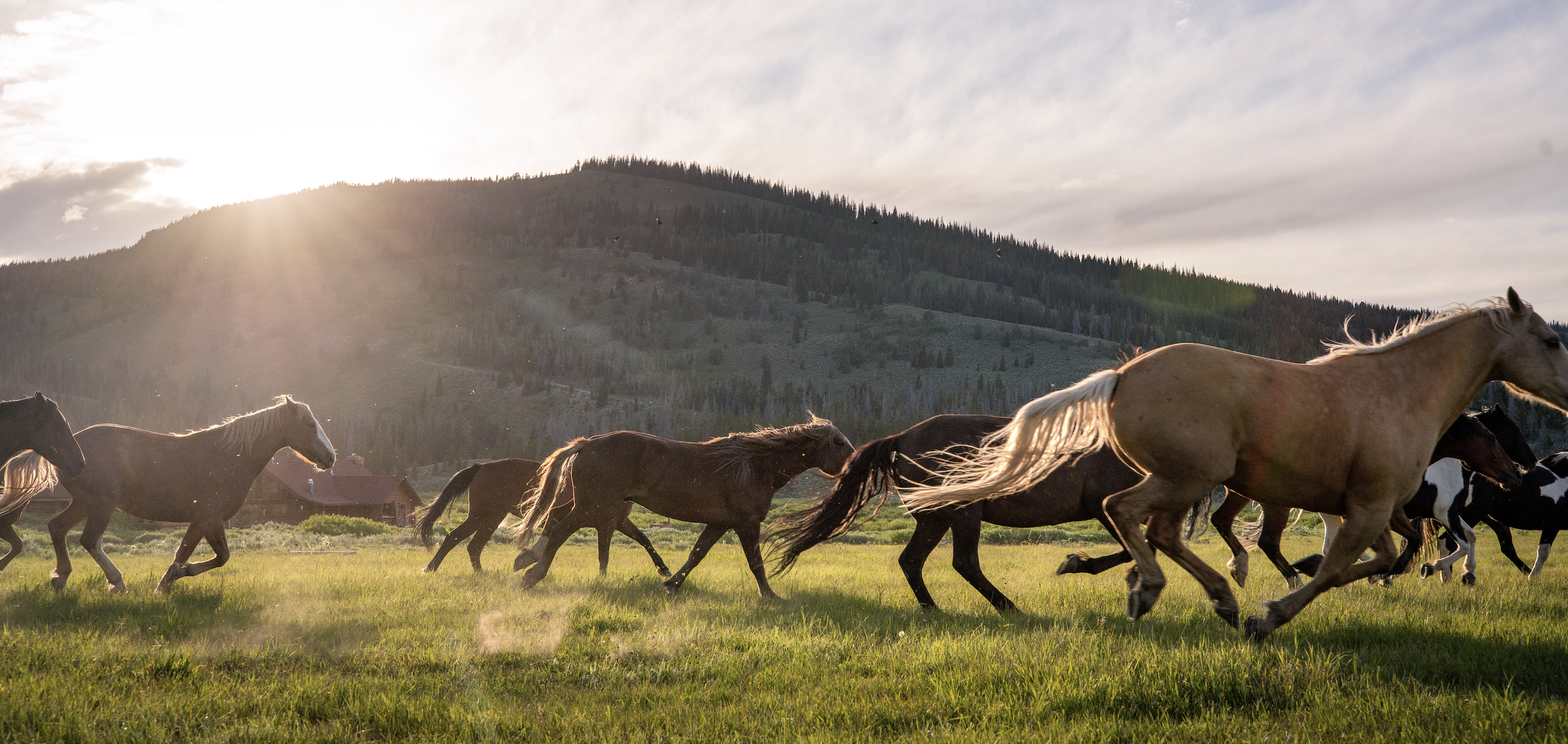
Preserving, Protecting, and Sharing
We are off the grid and are working towards a zero-waste future. We are committed to preserving, protecting, and sharing the land. For the Darwin, this includes commitments to maintaining the lightest possible footprint; to holistic pasture management; to facilitating exploration and personal challenge; to communicating the wonders of our location and broader ecosystem; to preparing meals with responsibly raised and sustainably sourced ingredients; to providing a relaxed, responsive, and friendly guest experience; to meticulously preparing for adversity—asking that guests understand their role in individual and collective safety; to developing a unique, Mustang-based equestrian program; and to engaging in conversation about the privileges, responsibilities, and complexities of recreating in a wilderness area.
Education
As our guest, you will experience the wild on your own terms, with or without a guide. We believe there is real value in the opportunity for exploration and true adventure, especially in a welcoming, intimate, and luxurious setting, and with the benefit of a safety net that is largely unseen. A significant aspect of this is focusing on creating a loose-reined atmosphere of curiosity, learning, and self-challenge, be it with respect to gaining confidence in moving through the rugged backcountry, learning local flora and fauna, or saddling a horse and helping our wranglers run the herd out to pasture for the night.
We strive to provide very individualized service, appropriate for best experiencing the vast wilderness that surrounds the ranch; we help you plan your days so that your week is as challenging or leisurely, gentle or rugged, independent or guided as you like.
Farm-to-table food
We recognize that good food comes from a web of relationships, and we want to showcase the full range of the Greater Yellowstone Ecosystem’s culinary offerings. As our guests explore our isolated oasis, we create dishes that wander the natural flavors of the landscape and offer a lasting sensory experience.
Inside our kitchen there is passion and liveliness. Leg of lamb from Ishawooa Mesa Ranch is spit- roasted in front of our fire. Heirloom legumes from neighboring farms become Mejadra lentils. Our homemade yogurt becomes panna cotta. Vegetable harvests from Ishawooa Mesa Ranch and Shoshone River Farm become leafy green salads with homegrown nasturtium flowers.
Our menus are healthy, made from scratch, vegetable-forward, varied, and casual—and they reflect the bounty of the summer season. Our cooks are experienced, imaginative, and inspired by chefs and traditions from around the world.
We are committed to placing sustainability at the forefront of our operation, and we take this ethic into the ways we source our food. We harvest what we can from the landscape we live in—guests can enjoy an elderflower cocktail perched on a cliffs edge a stone’s throw away from the elderberry bush. The majority of our meat and vegetables come from our sister ranch, Ishawooa Mesa Ranch, located in the dramatic landscape outside of Cody, Wyoming, where we raise beef and pork following sustainable, integrated agricultural practices. Food that isn’t directly coming from Ishawooa (by bush plane) is sourced from farms and businesses in Park, Teton, and Sublette Counties.
Mustang Training Program







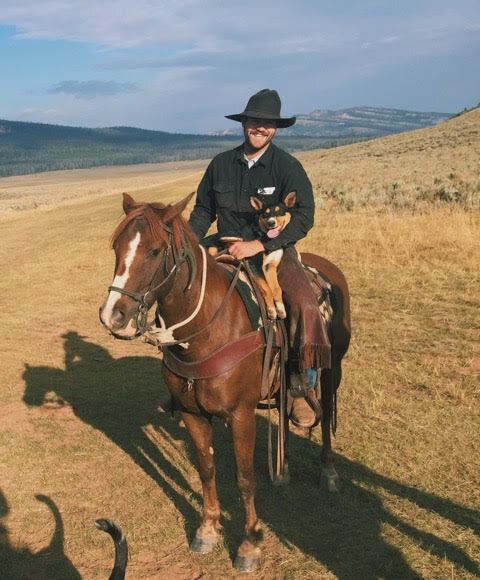

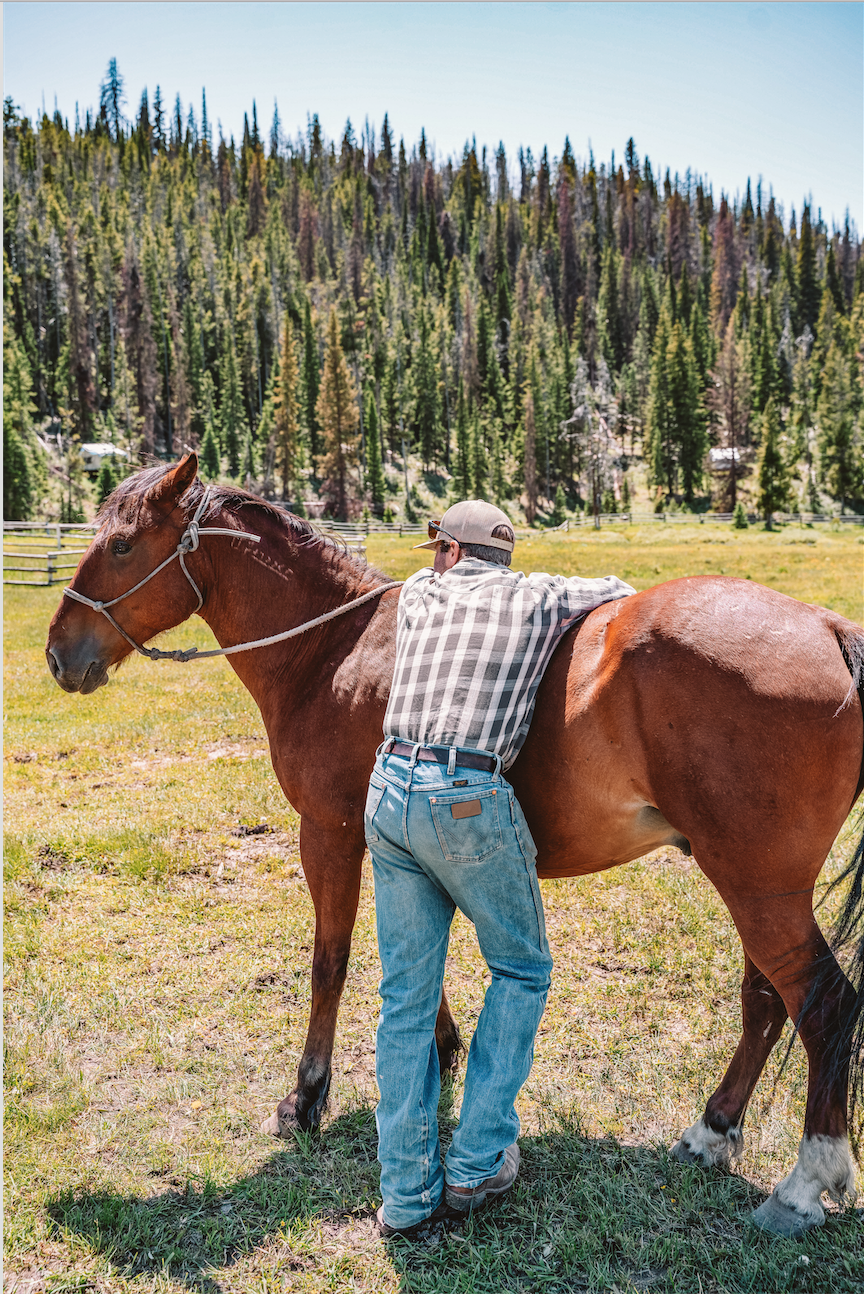
The Wyoming Honor Farm, located in nearby Riverton, is dedicated to inmate rehabilitation through the Bureau of Land Management Wild Horse & Burro Program. Mustangs and burros are removed from BLM rangelands, taken to the farm for basic groundwork and riding, and sold at auction. In support of this effort by the Wyoming Department of Corrections, we have adopted a number of animals. These range-savvy horses have great instincts, tough feet, and make fantastic mountain horses. And our trio of burros is a delight.
Rotational Grazing
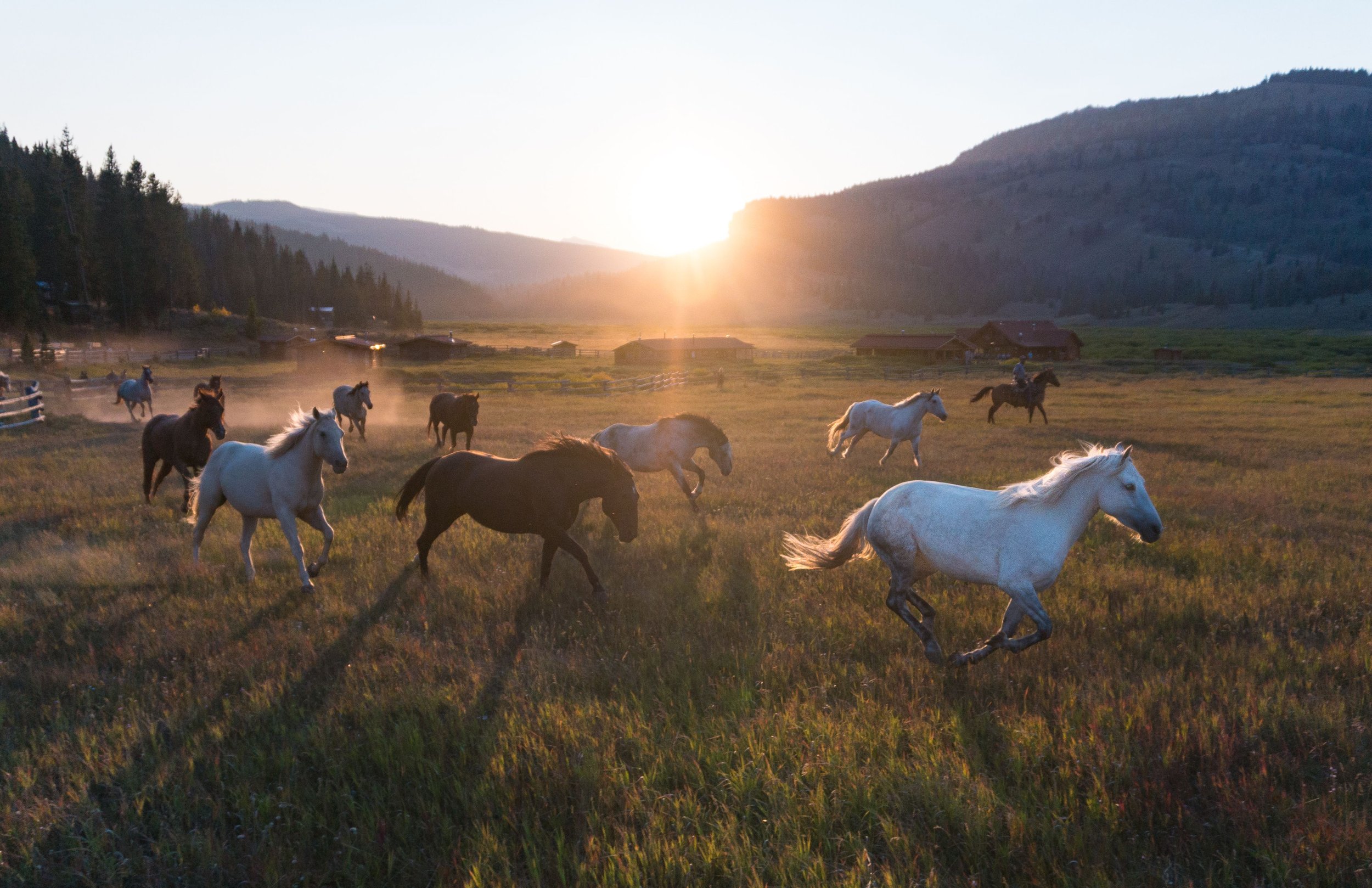
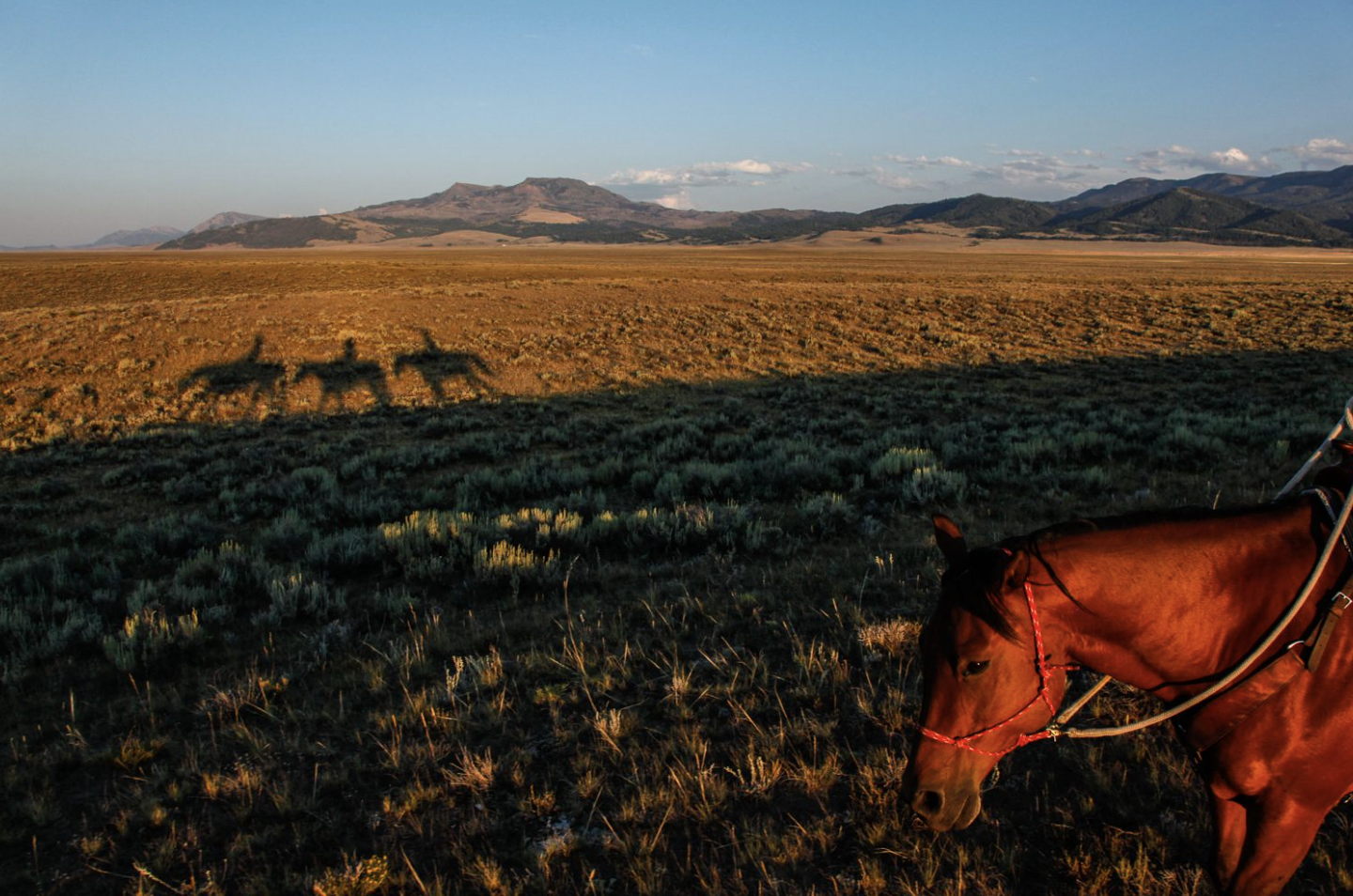
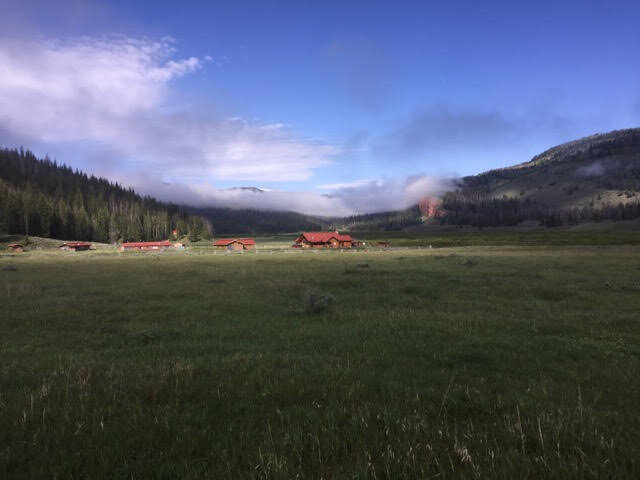
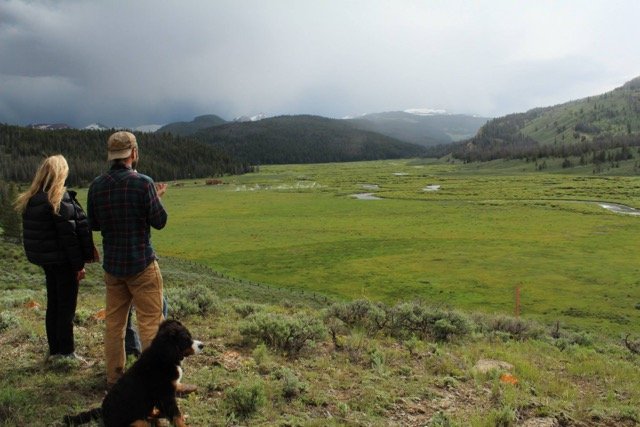
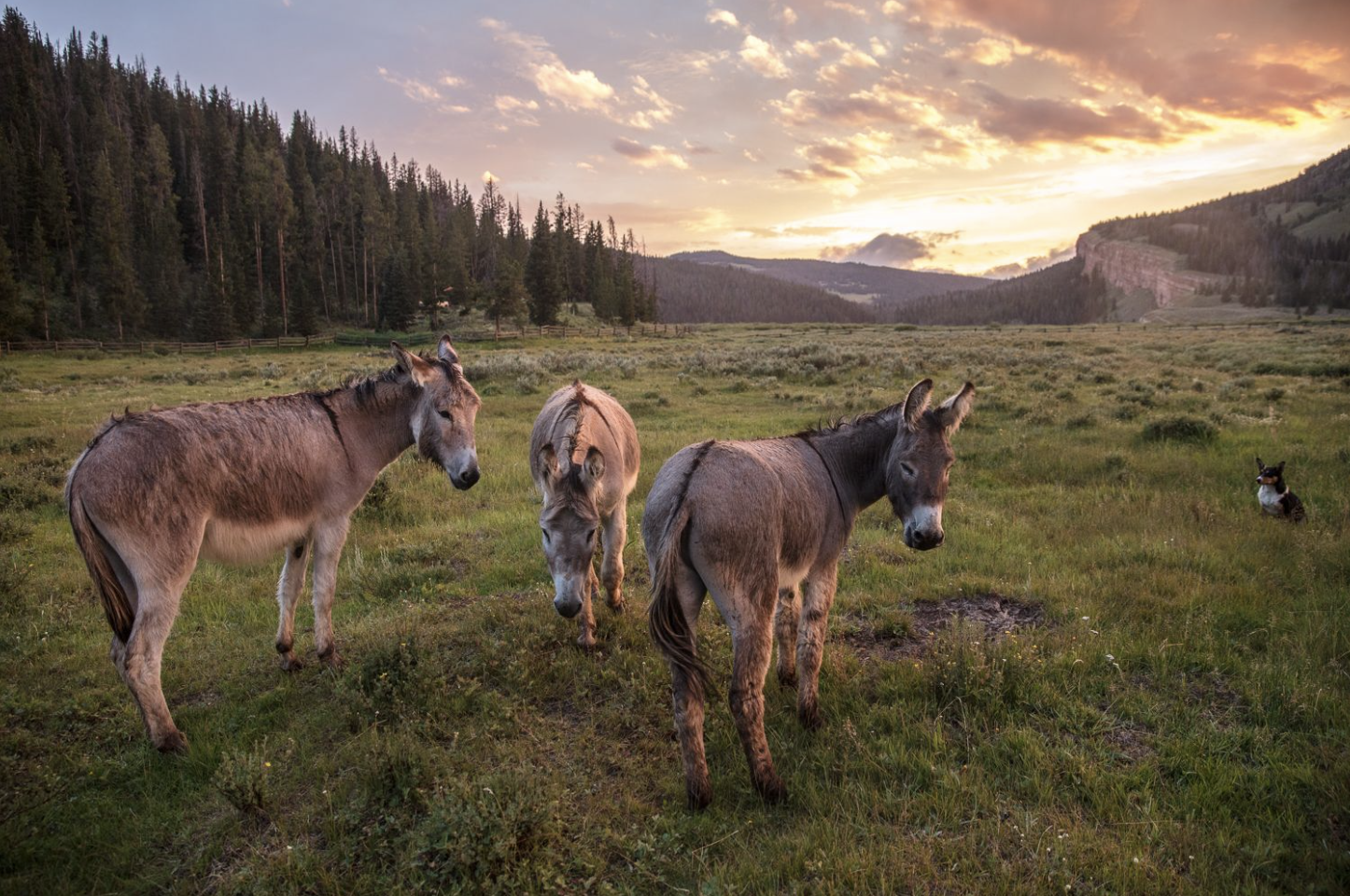


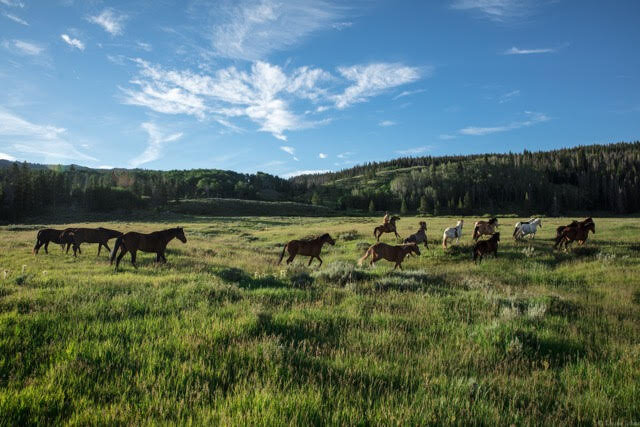
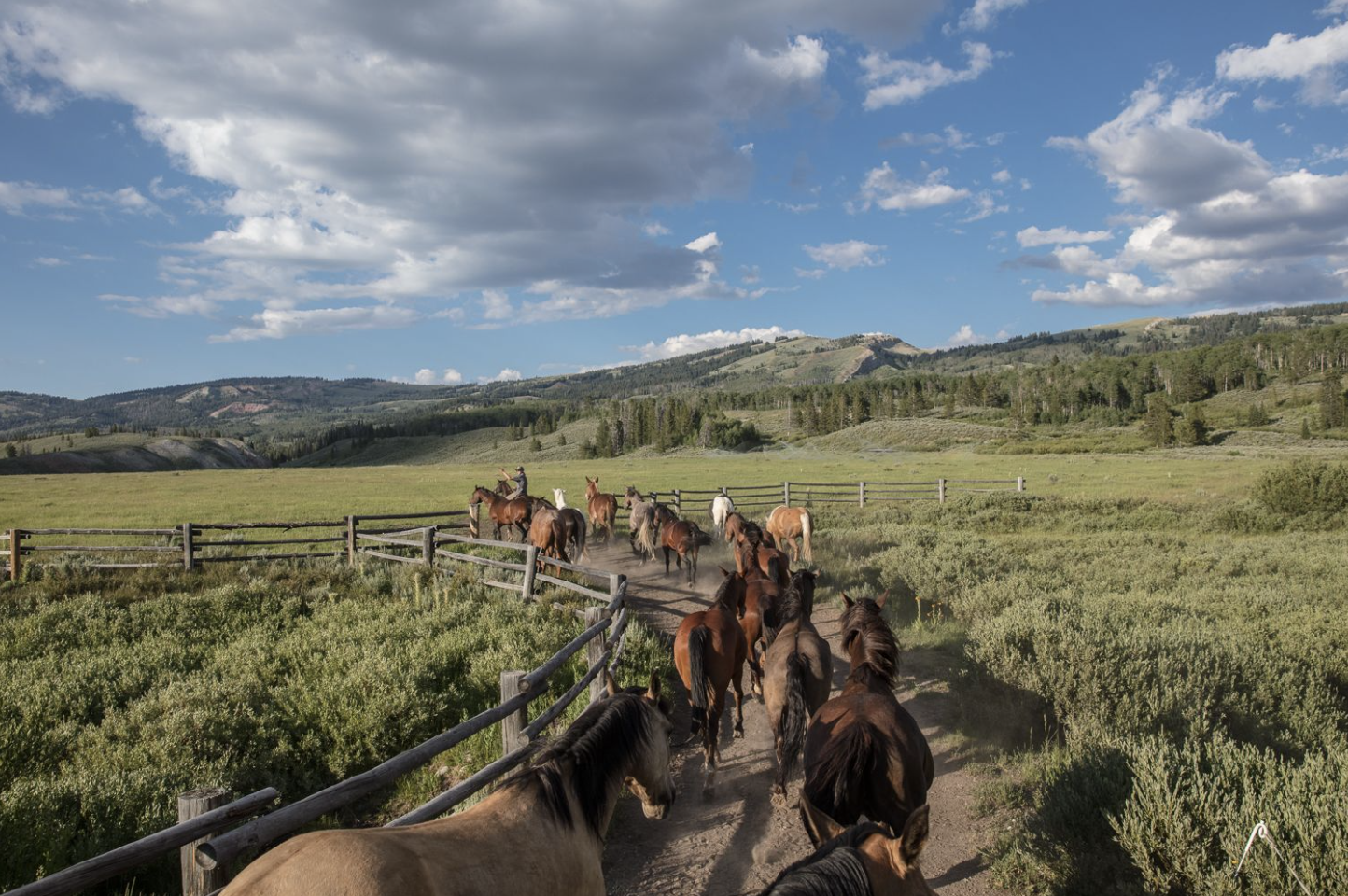
At the Darwin, we manage our pastures through a rotational grazing system. When our family purchased the ranch, much of the pastures were over-grazed and in need of good stewardship. Over seven years we have implemented a grazing pattern that helps replicate the way wild animals would graze. Instead of turning our horses out loose every evening, we corral them into a large, enclosed pasture. They eat in one spot for a night or two and then move on to a new section, never returning to the same section all summer. This style replicates a migrating animal herd that would typically spend a night or two in an area—stomping, rolling, and grazing. This has been incredibly effective in bringing back native grasses that evolved to be consumed in this exact manner. Alongside our grazing, we only reseed pasture with a native grass seed specifically designed for the high alpine Gros-Ventre area. We never use chemical fertilizers of any kind.



